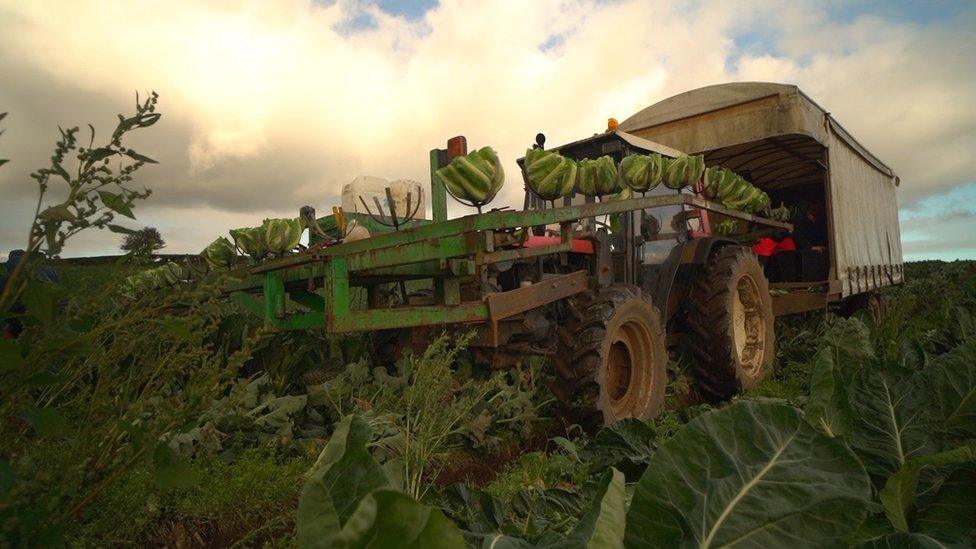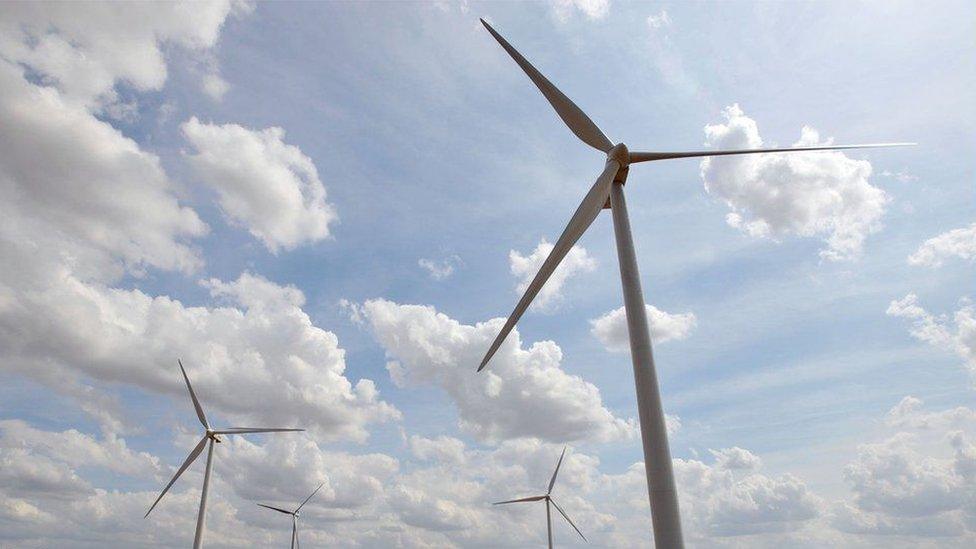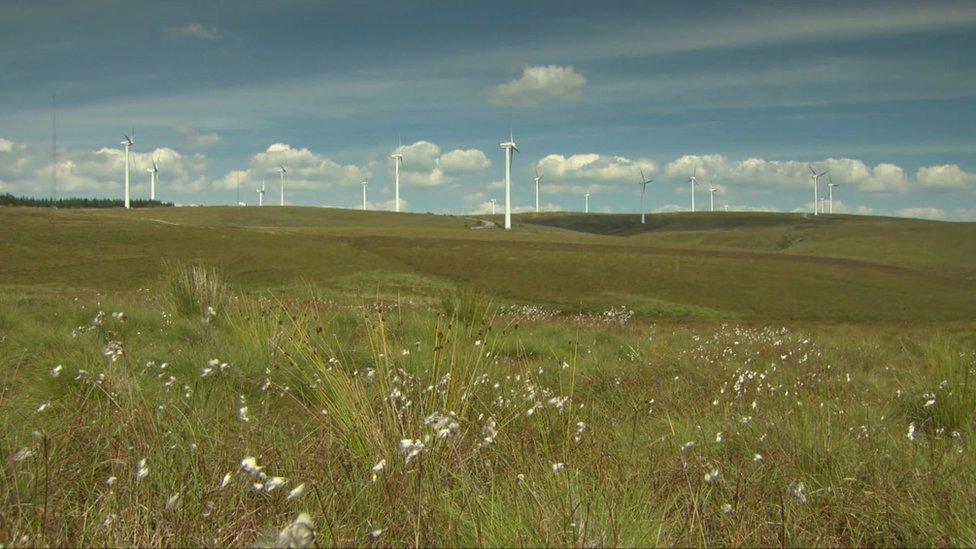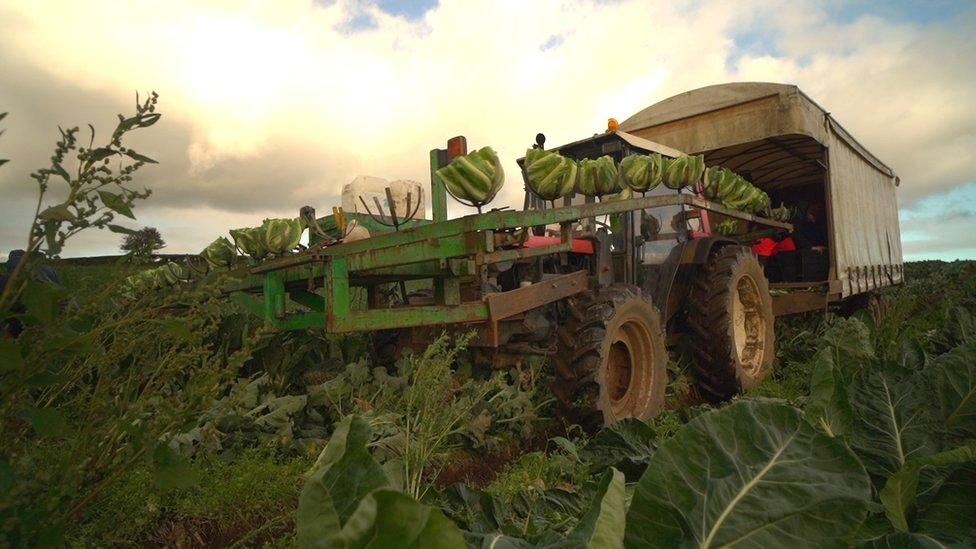Climate change: Agri-food groups promote Edwin Poots' bill
- Published

The agricultural sector is a significant part of the economy in Northern Ireland
Agri-food business groups have urged assembly members to back a new law that aims to reduce greenhouse gas emissions by 82% by 2050.
But a coalition of environmental groups are calling on assembly members to set a tougher net-zero target.
The business groups say the tougher target would result in "significant damage" to the rural economy.
The draft law, known as Climate Change (No.2) Bill, will be considered by the assembly on Tuesday.
It is one of two climate change draft laws currently before the assembly.
The Climate Change (No.1) Bill proposes to reach net-zero greenhouse gas emissions by 2045.
It is a private members bill brought forward by Green Party leader Clare Bailey.
The second bill, brought by the Agriculture and Environment Minister Edwin Poots, sets a target of an 82% reduction in emissions by 2050.
That figure is aligned with what the government's climate advisory body, the Committee on Climate Change, says is practically possible given Northern Ireland's relativity large agriculture sector.
A short-lived bid to find a compromise between the two bills foundered in the autumn.
'Fair share'
Assembly members from the Green Party, Sinn Féin and Alliance have proposed amendments to Mr Poots' bill, which would effectively bring it in line with Ms Bailey's bill.
The business groups, which include the Ulster Farmers' Union and NI Food & Drink, have written to assembly members asking them to reject the amendments.
They say the target of 82% is "extremely challenging" for the sector but they support it because it is "grounded in science and based on the concept of everyone doing their fair share".
However, they say a net-zero target would lead to the livestock sector becoming a "cottage industry" and mean "large job losses in food processing, and rural communities ruined, while our food will have to be imported from countries with much higher emissions and at higher cost".

Edwin Poots' bill is one of two climate bills making their way through the Northern Ireland Assembly
They describe amendments aimed at providing protections for agri-food under net zero as having "no substance or value".
A coalition of environmental groups, including the RSPB and Friends of the Earth, are urging assembly members to support the amendments.
Friends of the Earth say the amendments will make the legislation "stronger, fairer and more independent - including a just transition, a zero-carbon target, independent oversight and clear policies across government departments".
Northern Ireland is the only part of the UK without its own climate legislation, though it is contributing to wider UK reduction targets.
In 2020, the Committee on Climate Change suggested an 82% reduction by 2050 would be "an equitable contribution" for Northern Ireland to the UK's net-zero ambition.
It said the economic reliance on agriculture, Northern Ireland's biggest emitting sector, would make it difficult to go further and faster without a significant reduction in agricultural output.
Related topics
- Published2 January 2022

- Published12 November 2021

- Published30 October 2021
